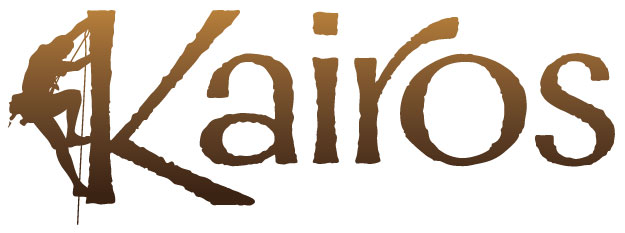
One of the experiences that Kairos provides year-round for its participants is the sport of bouldering.
Bouldering is a form of rock climbing where the athlete climbs only as high as it is safe to fall, but does not use a rope. Instead, guides and peers use gymnastic ‘spotting’ techniques and specially-designed ‘crash pads’ to keep the athletes safe. Boulderers typically climb on boulders instead of cliffs, eliminating the risk of rock fall from above, and adding the reward of being able to stand on top of the ‘conquered’ climb and rest.
Routes that boulderers climb are called ‘problems’ and usually consist of only a few (usually 6-12) moves that are much more challenging than typical rock climbing, and often much more gymnastic. Bouldering can be at once frustrating and engaging, overwhelming and peaceful, painful and comforting, social and individual.
The glory of bouldering is that the greatest experiences are intimately related to the worst experiences.
The highs depend on the lows. In bouldering, a successful climb is simply not rewarding unless it is a successful climb that was fought for. The more difficult a problem is for a boulderer, the more she must fight for the climb, and the more she fights for the climb, the greater the thrill when she stands on top of the boulder, basking in the overwhelming sensations of victory. Of course to achieve this reward, she must outlast a wilderness of despair, as she second-guesses and doubts her strength at every fall, fall after fall.
The blessing and the curse of such a sport, is that no problem is impossible, but nearly every problem is improbable.
As he climbs other problems around it, he successfully completes the easier problems in 1, 2 or even 5 tries.
It feels good, and he is proud of himself, but still the Project calls to him. Eventually he cannot ignore it and he gives it his first real attempt. Rejection!!
Further confirmation that this climb is not possible for him, he is not good enough, not ready.
He is conflicted inside, he does not want to experience rejection again, but he wants to climb the project.
He throws himself at the project again, despite his conflicting feelings. A cycle of enthusiastic attempts and disheartening rejections follows until finally, the climber tries the first move, and it feels different… he understands it differently.
“If I only squeeze this muscle this way, balance on my toe this way, and throw my body skyward exactly this way… perhaps it is possible,” he thinks to himself. And then success comes. He can do the first move.
Thrilled over such an accomplishment, the climber invites her friends to come watch, throws herself at the project and the project dismisses her once again. She is finally beginning to understand the curse of a sport that seemed so fun and so relaxing just an hour ago. No matter how much effort she puts into the first move of a problem, and even when she finally figures it out and understands it, she must still climb that first move and put all the same energy into it every time she gets on the problem, if she ever wants a chance to climb the second move. It does not become suddenly easy because you succeeded once. Likewise, it does not become suddenly harder because you have failed once. The rock is constant, we are the ones who change.
To overcome the problem, we must not change the problem without- that is never enough.
We must change the problem within.
It is a therapy we share. Staff refuse to be ‘teachers’ who have all the answers that the students must absorb.
Staff instead become teachers who inspire passion, craft experiences, and share burdens. We grow to love and hate bouldering as it begins to represent both our victories, and our unfinished projects. We return with excitement and trepidation. We learn to guide each other through the experience, provide the community of support, and be the invisible force that helps each other to succeed.
And of course, we all have the opportunity to see ourselves overcome, to engage in a contest that is both against ourselves and greater than ourselves, and to experience the ultimate rush, the goal of all boulderers, The Project.
Dan LeMaire







No comments:
Post a Comment